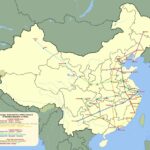In August 2021 I commented with a dedicated article the Olympic summer games of Tokyo, delayed of one year for COVID pandemic, from a geopolitical point of view. Like many journalists do, I could put here again the same article, because the Paris Olympic results are not so different at a geopolitical reading. G7 countries dominates the first ten positions of final classification, being there 6 of them, except Canada in twelfth position. The first ten positions, lacking Russian Federation, are occupied by the same countries of Tokyo with some advance for Australia, fourth from sixth, France from eighth to fifth, inverted position between Italy and Germany in Tokyo tenth and ninth, and viceversa in Paris. The real new event and big success is for South Korea, entering at eight position from the sixteenth in Tokyo. In the first 30 positions, remain the majority in number of countries and the first place. for medals to EU, but not existing as a geopolitical entity. Remarkably the first three positions are occupied by the same countries, with parity in Gold medals between China and USA. The old Japan is very resilient notwithstanding demographic data and remains in third position after the two big countries. It overcomes his ex colony South Korea, while UK is not overcoming Australia. Of course looking at medals by million of population the classification is totally different, being New Zealand the first with 3,84 medals per million inhabitants: only Australia remains in fourth position in both the classification. Big countries have 0, something medals per million. Italy around 0,7.
So at the end of the day no BRICS overpassing Western World for the moment, and the same poor results for India, African and South American countries, for the cultural attitude toward sports and scarce economic possibilities for many of them. The two big heritages of the cool war confrontation have been the Euro-Atlantic schools and SSSR investments in sport, until now visible in Central Europe countries and in the Asiatic “STAN”. Some indications toward geopolitical slow change come from the clear fragmentation of Gold medals, more and more distributed among new countries. Many small countries try to specialise in one or two sports, more near to their traditions, like rugby in New Zealand or march in Ethiopia and Kenia. So not so many medals but being the first in some specialties: 23 countries have one Gold medal. This enlarge the participation in Asia, Africa and South America, but the process is very slow. Geopolitics is a hard and sometime sad approach, but its constraints are difficult to be removed in. the short term. So not so much new in summer Olympics, and the sanctions against Russian Federation don’t permit a full and complete evaluation of sport status in this enormous world area: 140 millions people remain cut off from an open competition, because of a war. Old Olympic Games in Greece have been created to assure a truce among continuous wars of the greek cities one against the other. After 2500 years the so called civilised world is not able to do the same and this political partisan attitude may destroy the meaning of the Games for the future, making of Olympics a sort of EXPO of richest nations, mainly of Western world with major asiatic powers of Globalisation. The five rings of Olympic logo are differently coloured and interconnected to symbolise unity of world people, not their divide.



